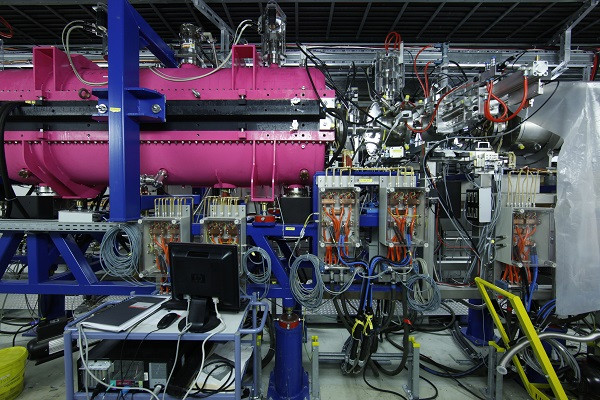- Research Project
HIC for FAIR
- Natural Sciences
- Engineering Sciences

All matter on earth, including our bodies, consists of a gigantic number of atoms. What is the origin of these atoms, how old are they, how long do they live and what is their origin? The research network "HIC for FAIR" aims to find answers to these questions.
The scientists involved are developing accelerators and detectors to prepare experiments on the particle accelerator FAIR - Facility for Antiproton and Ion Research. It will be fully operational in Darmstadt in 2021.
The FAIR particle accelerator makes it possible to produce the "primordial soup", which was created a few fractions of a second after the Big Bang, in the laboratory. The researchers can thus observe the transition to atomic nuclei of the lightest elements, hydrogen and helium. Also the origin of heavier matter like carbon and oxygen will be investigated. These experiments are intended to show how the matter of today's universe and, with it, we too, were created. The research project combines theory and experiment, as well as basic research and technical development.
The Helmholtz International Center for FAIR (HIC for FAIR) was founded as part of the state funding program LOEWE (Landes-Offensive zur Entwicklung Wissenschaftlich-ökonomischer Exzellenz) of the Hessian Ministry of Science and Art. The aim is to strengthen the world's leading high-tech research in the fields of supernova, antimatter and accelerator research in Hesse. Hessian universities and research institutes work together at the HIC for FAIR in a unique way.




